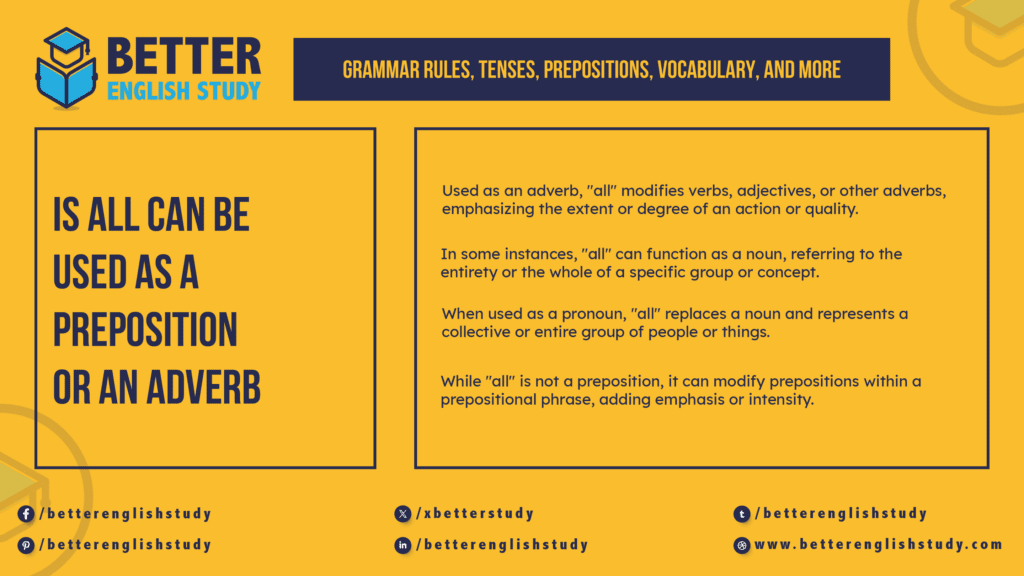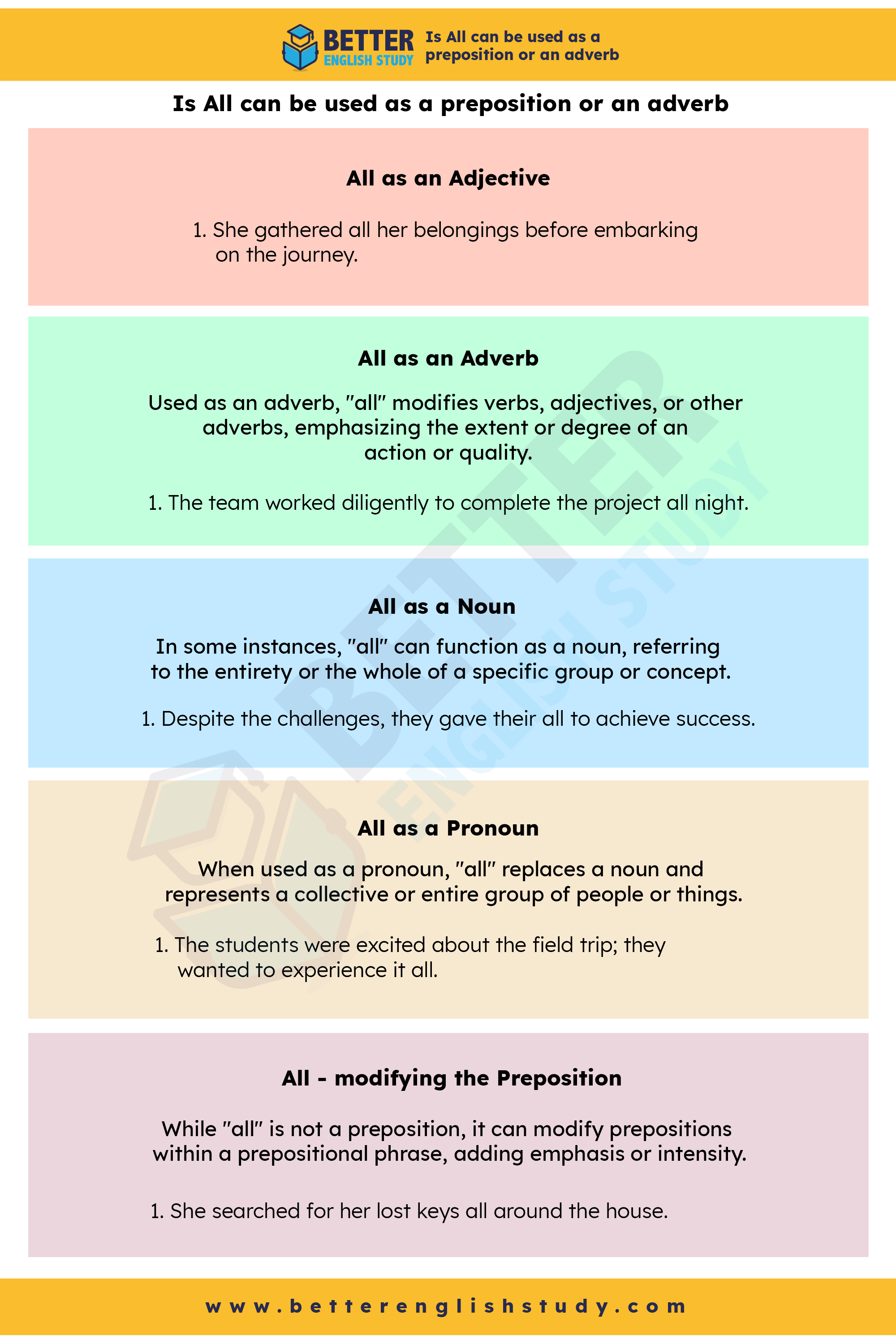
In the vast expanse of the English language, words often wear multiple hats, serving various roles to articulate nuanced meanings. One such word that often piques curiosity is “all.”
In this exploration, we will delve into the functions of “all” to ascertain whether it is indeed a preposition.
Is All a Preposition?
No, “all” is not a preposition. While the word ‘all’ might be the object within a prepositional phrase, it does not function as a preposition itself.
Instead, it is a versatile word that can be used as an adjective, an adverb, a noun, or a pronoun, showcasing its adaptability in different grammatical contexts.
All as an Adjective
One of the primary roles of “all” is as an adjective, modifying nouns to convey a sense of totality or completeness.
Example as an Adjective:
- She gathered all her belongings before embarking on the journey.
In this example, “all” modifies the noun “belongings,” indicating the inclusivity of everything she possesses.
All as an Adverb
Used as an adverb, “all” modifies verbs, adjectives, or other adverbs, emphasizing the extent or degree of an action or quality.
Example as an Adverb:
- The team worked diligently to complete the project all night.
Here, “all” modifies the adverb “night,” signifying the entire duration during which the team worked.
All as a Noun
In some instances, “all” can function as a noun, referring to the entirety or the whole of a specific group or concept.
Example as a Noun:
- Despite the challenges, they gave their all to achieve success.
In this sentence, “all” serves as a noun, representing the collective effort or dedication of the individuals involved.
All as a Pronoun
When used as a pronoun, “all” replaces a noun and represents a collective or entire group of people or things.
Example as a Pronoun:
- The students were excited about the field trip; they wanted to experience it all.
Here, “all” functions as a pronoun, replacing the idea of the complete experience the students desire.

All – modifying the Preposition
While “all” is not a preposition, it can modify prepositions within a prepositional phrase, adding emphasis or intensity.
Example Modifying a Preposition:
- She searched for her lost keys all around the house.
In this instance, “all” intensifies the preposition “around,” emphasizing the thorough search conducted throughout the house.
In conclusion, “all” proves to be a remarkably versatile word, donning the roles of adjective, adverb, noun, and pronoun. While it might find itself within prepositional phrases, it does not function as a preposition.
Understanding the diverse roles of “all” enhances our grasp of its usage across various contexts, showcasing its adaptability in expressing a wide array of meanings.
